Independent UK publisher Silvertail Books has vowed to go ahead with its plans to publish a memoir by the father of Scientology leader David Miscavige, despite legal threats from Miscavige’s lawyers.
Ruthless by Ron Miscavige is due out in the UK on 3 May. According to a description from Silvertail, the memoir “is David’s story told by the person who knows him best – his father”. The publisher said that “Ron traces the arc of David’s life from his early years to David’s eventual, stellar rise to power in Scientology; his brutal approach to running the organisation today; and the disastrous effects that his leadership has had on countless numbers of Scientologists and their families.”
American journalist Tony Ortega, who writes about Scientology on his website The Underground Bunker, broke the news that lawyers acting for David Miscavige had contacted Silvertail over the book’s forthcoming publication. In a letter from the law firm, published online by Ortega, Silvertail publisher Humfrey Hunter is told that the book “contains malicious, false, misleading and highly defamatory allegations relating to our client”. The claims are “unequivocally denied by our client”, it continues, and urges Hunter to reconsider his decision to publish.
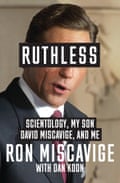
The letter claims that the book’s publication has been motivated by “an extremely difficult and an unfortunate family history” and that Miscavige’s father, who left the church in 2012, “would not have been in a position to have any direct knowledge or experience of the totally discredited and disproven claims”. Allegations made in the book “can only be for blatant commercial gain and vindictive ill will towards our client and his two daughters.
“In the event that you proceed with the release of this book, in total disregard for the truth, our client will be left with no alternative but to seek the protection of UK/Irish defamation and other laws,” says the letter, claiming that “as the leader of a worldwide religion, our client is entitled to an appropriate degree of respect”.
Hunter, however, told the Guardian that he was still planning to publish Miscavige’s memoir, which he called “very strong”. “We’re definitely going ahead – there’s no question,” he said. “I’m very confident that if they were to sue, we would be able to successfully defend the book and its content.”
Hunter has published books about Scientology before, including John Sweeney’s The Church of Fear: Inside the Weird World of Scientology. He said that he was also contacted by lawyers warning him off publishing Sweeney’s title, but he went ahead and was not sued.
“I’ve done a few Scientology books before and I’m always on the lookout for more. They sell pretty well, and no one else in the UK will publish them, I assume because of legal [issues],” he said. “So despite being a tiny publisher, I get a clear run at them, and I’m thrilled to have [Ruthless].”
The letter from Miscavige’s lawyers notes that Silvertail has published “a number of vehemently anti-Scientology titles … Indeed, it appears that at least a quarter of your titles are publications which are zealously critical of the Church of Scientology. In such circumstances, the only reasonable inference that can be drawn is that you are pursuing a malicious and vindictive agenda against our client and the church.”
In a preview of an interview airing on the US TV news programme 20/20 on Friday, Ron Miscavige recalls introducing his son to Scientology when he was nine years old, with an “auditing session”, a form of spiritual counselling used by the church. “After 45 minutes, David walks out, smiling, bright,” he said. “[That moment] decided his life, and mine.” On his 16th birthday, David Miscavige left high school to work as a deputy to the religion’s founder, L Ron Hubbard, until Hubbard’s death in 1986.
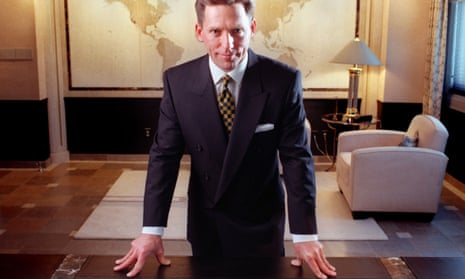

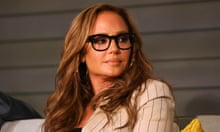
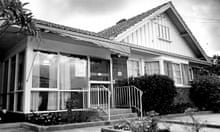
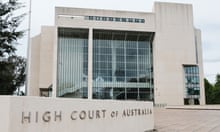
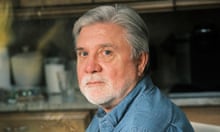



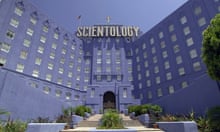
Comments (…)
Sign in or create your Guardian account to join the discussion